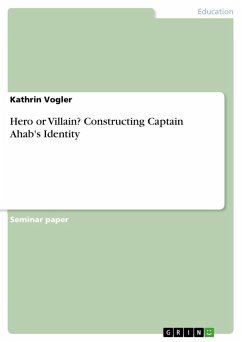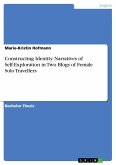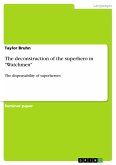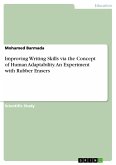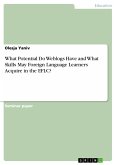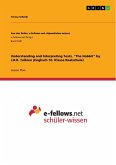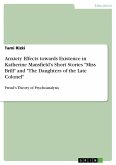Seminar paper from the year 2015 in the subject Didactics - English - Literature, Works, grade: 1,0, University of Stuttgart, language: English, abstract: In 1851 Herman Melville published his novel "Moby-Dick; or, The Whale" which is considered an outstanding work of Romanticism and the American Renaissance. Although it was a commercial failure at first, its reputation as a Great American Novel grew during the twentieth century. Other authors admit they wished they had written it themselves and praise the novel. What makes the novel especially interesting is the protagonist, Captain Ahab, who is on a monomaniacal quest for revenge on the white whale Moby Dick that took his leg on a previous voyage. The scholars' opinions about Ahab range from being a villain to being a hero, whereby some scholars might feel ambiguous and hesitant to put Ahab in either one of the categories. The complexity of Ahab's character makes it hard to categorize him in either good or bad because he really displays qualities of both. This paper's aim is to look behind Captain Ahab's façade in order to find out how Melville constructed his protagonist and why he constructed him the way he did. First of all it is important to look at some key features that occur in Ahab's character, namely the battle between free will and fate, madness and obsession with revenge. The second part of this paper takes a closer look at possible influences on the construction of Captain Ahab by comparing Ahab to other leaders: In a comparison to King Ahab of Israel the topic of religion in Moby Dick will be mentioned, a comparison to Milton's Satan will deal with Ahab's satanic features and the last comparison will connect Ahab to the tragic hero of Shakespeare. Finally the main findings will be summarized in a conclusion.
Hinweis: Dieser Artikel kann nur an eine deutsche Lieferadresse ausgeliefert werden.
Hinweis: Dieser Artikel kann nur an eine deutsche Lieferadresse ausgeliefert werden.

